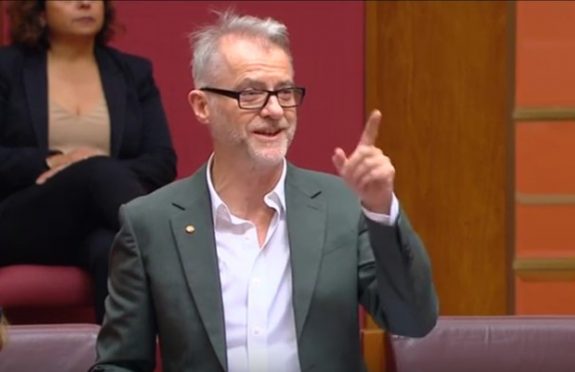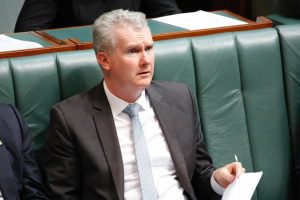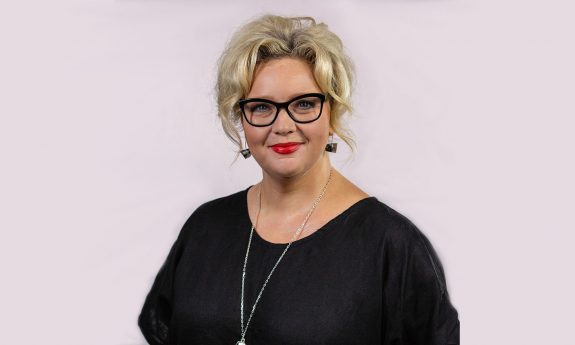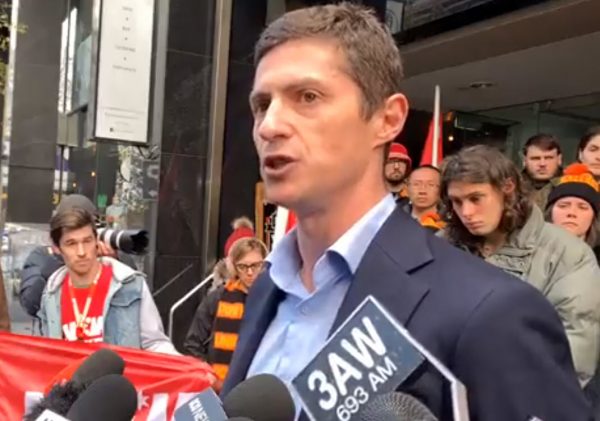Insecure work inquiry forthcoming: Tony Burke

With ever-growing concerns among those in Australia’s union movement over rising levels of casual work and under-employment, a Senate inquiry on insecure work will take place in 2021, shadow industrial relations minister Tony Burke announced on Friday.
This inquiry has been announced days after industrial relations reforms measures in the way of proposed legislation announced by the Morrison government and Attorney-General Christian Porter, Burke’s counterpart in industrial reforms matters, was seen by Labor to offer precious little if anything in the way of easing the levels of insecure work.
And as the Australian Council of Trade Unions (ACTU) has come out to assail the proposed “WorkChoices 2.0” legislation as resulting the cutting of workers’ pay and conditions in addition to avoiding scrutiny of insecure work issues, Burke says that Labor shares the ACTU’s concerns about putting more people into more permanent working positions.
“Some Australians like the flexibility of casual or gig work. But Labor wants to see more people in secure work, with good reliable pay and the highest of safety standards,” he said in announcing the inquiry.
“Insecure work is the pandemic that will stay with us – long after the COVID-19 threat has passed,” added Tony Sheldon, the Senator from New South Wales and former national secretary of the Transport Workers Union who will be chairing the inquiry.
Sheldon hinted that those working in the gig economy – from food delivery drivers and riders, and those operating ride-share services, to any form of temporary contract workers, freelancers, consultants and independent contractors and professionals – would be examined towards reaching more permanent employment solutions for their sectors as well as that of the entire workforce.
The recent deaths of five food delivery riders in Sydney’s CBD since the end of September has also hastened the need to bring the issues of gig economy jobs within the spheres of insecure work as a whole into focus alongside the need to regulate the nature of that type of work, said Sheldon.
“It is not acceptable that an underclass of work has been spawned where workers are denied the basic rights and minimum protections all Australians deserve,” said Sheldon.
In October, in Victoria, the Victorian Council on Social Services (VCOSS) drew links – centred around the middle of the COVID-19 pandemic – between those whose employment was defined as being of an insecure nature and workers’ declining states of health and well-being.
“… our industrial relations framework has not kept pace with changes to the labour market, and neither has government policy,” the report stated at its outset.
Specific to those in the gig economy, the VCOSS report stated: “A safe workforce is a healthy workforce. COVID-19 has highlighted the heightened financial vulnerability of workers in the care sector, a lack of coordination and consistency in training, entitlements and protections, and the fragility of support systems in maintaining consistent, quality care
“Workers engaged in the gig economy, who work across multiple platforms or a mixture of platform and more traditional employment types, have no access, or limited access to sick leave and other entitlements. Wages vary across platforms, and time and travel costs between shifts are not compensated. Health, safety and workers compensation arrangements depend on a worker’s employment status.”

Shadow industrial relations minister Tony Burke, who announced the inquiry (Photo from abc.net.au)
Burke said the inquiry is set to commence under Sheldon’s chairmanship when Parliament returns from its summer break in February, and its investigations stemming from it could take up a majority of the year ahead of a final reporting date of November 2021.
Those investigations may include personal security areas such as in income and housing, as well as dignity in retirement, affecting roughly four million Australians lacking the benefits and entitlements tied to permanent employment.
“If the COVID-19 pandemic has shown us anything it’s that insecure work is not just a threat to the wellbeing of individuals – it’s a threat to the wellbeing of our society,” said Burke.
Meanwhile, Wes Lambert, the chief executive officer of the Restaurant and Catering Association (R&CA), said in October that the lack of legislative definitions over what constitutes a gig economy worker was an area which required addressing.
Lambert, stating the R&CA’s position on the heels of a deadline for submissions into a State of Victoria’s own inquiry on the status of the gig economy and insecure work, said that his organisation seeks to operate within the rules and standards to suit gig economy workers – as long as all parties knew what was expected of them.
“[The] R&CA expressly does not condone sham contracting arrangements, or any other such arrangement deliberately intended to undermine employees,” said Lambert.
“However, [the] R&CA submits that the current laws and workplace protections are not fit for the purpose in the 21st century, particularly as the world of work continues to change in the current and post-pandemic climate.
Lambert added that without any clear definitions in any current amendments of the Fair Work Act (2009), members of his industry sectors could run wild and rampant with interpretations as to what makes up gig economy participants.
“Such an arrangement, in the R&CA’s view, would create opportunities for unintentional mis-classifications resulting in disparate inconsistencies.
“More interestingly, if an employer can prove that they were not aware that the employee was not a contractor, and they were not reckless, they would not be in breach of the Act, nor be subject to any civil penalties,” he said.
So while an industry organisation such as the B&CA views and supports investigations around what next year’s Senate inquiry is trying to achieve, Sheldon says that the practice of insecure work is far from restricted to industries such as hospitality and tourism alone.
“Insecure work is not just found in food delivery and ride-sharing – it is expanding across the economy including the mining, retail, hospitality, health and aged care, university and information technology sectors,” Sheldon said.
“This inquiry comes at a critical time for our economy and for the future of work,” he added.
Also by William Olson:
Unflappable unions remain focused versus IR reform bills
ACTU advocating justice calls for on-the-job deaths
Like what we do at The AIMN?
You’ll like it even more knowing that your donation will help us to keep up the good fight.
Chuck in a few bucks and see just how far it goes!











